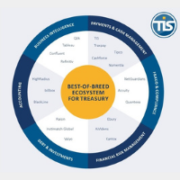Bitcoin – regulation and acceptance
| 06-12-2017 | Lionel Pavey |

As the price of Bitcoin reaches ever higher – more than $11,000 at the moment – Governments are starting to look at what regulation needs to be put into place. Bitcoin has gained a reputation as the currency of choice for tax evaders and drug traders due to its anonymity. It is a market with little or no regulation and, obviously, Governments are looking at lost revenue. Yesterday the UK Treasury stated the current anti-money regulations needs to be updated to encompass all virtual currencies.
It has been reported that criminals and terrorists have used virtual currencies to purchase illegal commodities via dark webs – ensuring complete anonymity. The proposal from the UK Treasury would mean that traders would be registered. At present, there are almost 100 ATM machines for Bitcoin transactions in the UK – with more than 70 in London. Cash can be entered into the machines and converted into Bitcoins. One transaction involved a customer paying in GBP 14,000 in cash.
For Governments, regulation would mean that the Treasury would be able to identify the owner of the money and investigate the source of the funds. Tax evasion would therefore be reduced. Naturally there are genuine investors who want to buy Bitcoin, but this can already be done via an electronic exchange.
To increase acceptance as a genuine alternative currency there needs to be a growth in financial products related to virtual currencies. Yesterday, the CBOE (Chicago Board Options Exchange) announced that it will start trading Bitcoin futures this coming Monday. Initial margins for trading will be 30 per cent and price limits will be put in place.
However, there are still many hurdles before complete acceptance can occur. It is still not a recognized currency – the retail outlets that accept payment in Bitcoin is still very small. In America, only 3 of the top 500 online retailers accept Bitcoin. Whilst the price of Bitcoin has surged in 2017, this very large price increase is having a negative effect on acceptance by retailers. As the currency has increased in value so much, there appears to be a reluctance among owners of Bitcoin to use Bitcoin to transact. It has become easier to speculate on its value than to trade for goods. This is a serious problem for a virtual currency to gain worldwide acceptance.
Another area of concern regards the transaction time. Confirmation of a transaction can take up to 20 minutes – if you ordered a coffee, then it would be cold before you could drink it!
Virtual currencies are certainly something that should be considered for the future, but until they are backed and trusted by the Government and residents of a country, they will only have a small niche marketplace.

Cash Management and Treasury Specialist









